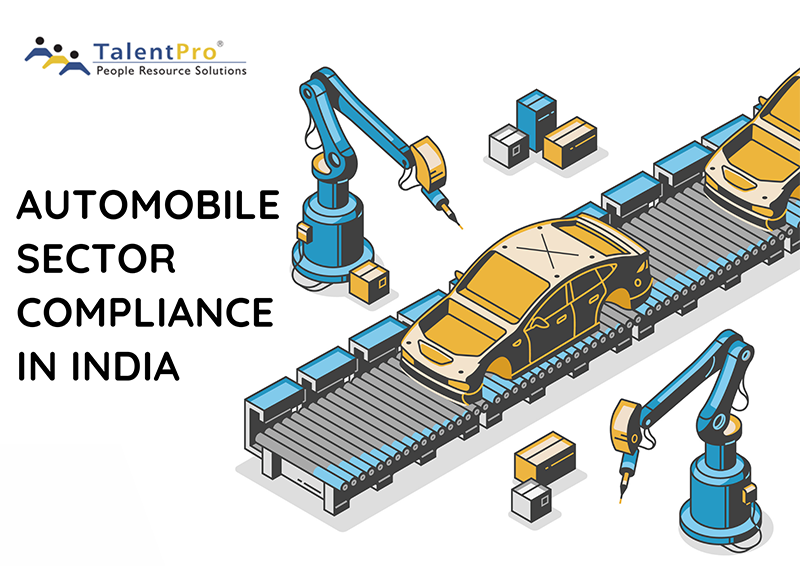Despite prevailing pandemic conditions, the Indian automobile industry in 2021 will soon see some positive growth in the coming years. A report by McKinsey has stated that the sector is expected to generate 65 million jobs by the year 2026.
The automobile sector is an intense and challenging one. The quality of its output depends entirely on the performance of workers and employees who are the backbone of this sector. It becomes essential to abide by rules and regulations relating to their welfare, otherwise known as HR statutory compliance. Compliance and ensuring the needs of workers and employees are met can lead to a productive workplace.
While compliance can refer to the process of adhering to rules and regulations, they are a necessary component in any sector or organization. Compliance refers to rules concerning aspects such as the welfare of employees and workers and the standards that should be followed while conducting business. Compliance in the automobile sector is broadly divided into 7 key categories with specific laws, regulations, and standards for each of the categories:
(Read more: Automobile Industry: Critical HR Challenges)
Establishment Related Laws
Certain laws are essential for any organization to adhere to bare minimum standards to commence a new business within the automobile sector. This includes the Companies Act (2013), The Partnership act, the Society Registration act (1960), The Government Buildings act (1899), The Electricity Act (2003), The Shop and Establishment Compliance Act (1953), and the Factories Act (1956). These laws are meant to be rigorously followed by organizations as they pertain to the setting up an organization’s manufacturing unit and clearly define what factories and companies are.
Regulatory Laws
The Motor Vehicles Act (1988) and Central Motor Vehicles Rule (1989) pertain to the inspection of automobiles by the government and its duly elected officials and representatives to ensure that the quality of vehicles that have been manufactured pass certain government standards that have been imposed on all companies in the sector. Also, companies who look to build new vehicles must procure approval from the government with a prototype and adhere to their regulations.
Taxation
When referring to taxation-based laws and regulations, The Income Tax Act (1961) and the application of customs on the import of goods and parts ensure that all organizations fairly adhere to these regulations without unfair advantage as well as ensure they have the best materials to work with to grow in this sector.
Environment and Safety Compliance
Environment Protection Act (1986) provides rules and regulations regarding greener standards of working for vehicles and companies, including smoke emissions from automobiles and the regulation of air pollutants from internal combustion engine equipment, including motor vehicles.
Read more: (Statutory compliance checklist for manufacturing companies)
Payment of Wages
The backbone of any industry is the employees. Ensuring their well-being and protection of their interests is of primary importance to business owners. One of the ways that managers can ensure that the get the best employees and workers by using third party vendors who provide the best staffing solutions. Laws related to payment of wages and employee welfare include the Employee Compensation Act (1923), the Minimum Wage Act and ESI act of 1948, the Provident Fund Act (1952), and Payment of Bonus Act (1965).
The above compliances are however, not the only ones that govern the working of the automobile sector. Apart from these regulations, there are those that concern intellectual property regulations and competition between organizations within the same sector.
To ensure that compliances are met, organizations use payroll management systems that allow managers to track compliance and help them deal with compliance lapses effectively. The software can keep track of taxation, employee information as well as information related to industrial compliance.










